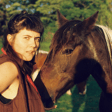
Quit Your Job & Work in Reciprocity with Linda Cockburn
I tell a story about making bugger all money but feeling filthy rich, before being joined by the incredible Linda Cockburn (pronounced “Co’burn” cos it’s Scottish) who explains why Capitalism is a death cult, and ways to crowd it out with reciprocity. Ample brain fodder and fiery inspiration here, folks!
We cover:
🪶 Being unmade by successive tragedies.
🪶 Quitting employment to work in the home economy.
🪶 Going six months without spending a dollar.
🪶 How to grow your own toilet paper!
🪶 Will politicians ever “solve” climate change?
🪶 Why you can’t question capitalism
🪶 How the growth imperative works
🪶 Changing the narrative through language
🪶 The debt treadmill for “developing” nations
🪶 The closest thing we’ve had to utopia in human history!
🪶 Old and new indigeneity through storytelling
🪶 Hitting bodily limits
🪶 How to get owwwfff the hamster wheel
🪶 Riches without an income
🪶 The Eudaimonia Index & Reciprocity
🪶 Black Soldier Fly Revolution!
🪶 How to share even when you’re a scoundrel only child like me
🪶 Why it feels great to give your best stuff away
🧙♀️ LINKY POOS
Linda’s books
The Quiet Revolution (basically why & how to decouple from the death cult of capitalism & start giving back to all life)
Eat My Shadow (hopeful and instructive collapse fiction!)
Linda’s articles in Organic Gardener magazine
A kickass essay by Linda ~ My Planet Saving Superpowers
The Last Hours of Ancient Sunlight by Thom Hartmann
Seed Freaks ~ open pollinated seeds Tasmania
David Holmgren’s RetroSuburbia: The Downshifter’s Guide to a Resilient Future
Sound credit: Bruny Island Ambience by guyburns License: Attribution 4.0
🧡🧡🧡 support Reskillience on Patreon (plz don’t use the app it takes a fee, go desktop) 🧡🧡🧡



















